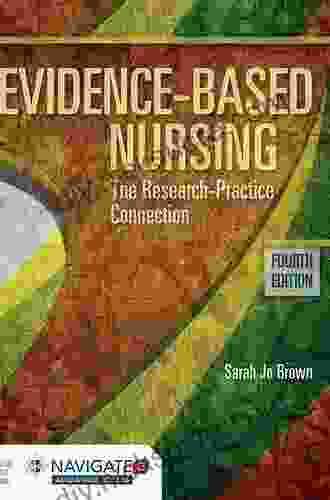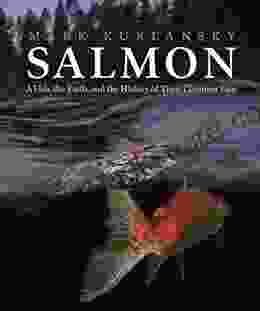Evidence-Based Nursing: The Research Practice Connection

Evidence-based nursing (EBN) is a process by which nurses use research findings to make clinical decisions about patient care. It is a systematic and rigorous approach to using the best available evidence to guide nursing practice. EBN is based on the belief that nurses should make decisions about patient care based on the best available evidence, rather than on tradition or personal experience.
4.5 out of 5
| Language | : | English |
| File size | : | 5947 KB |
| Text-to-Speech | : | Enabled |
| Screen Reader | : | Supported |
| Enhanced typesetting | : | Enabled |
| Print length | : | 400 pages |
The EBN process involves five steps:
- Ask a clinical question. The first step in the EBN process is to ask a clinical question about a patient care issue. The question should be specific and focused, and it should be relevant to the patient's care.
- Search for evidence. Once you have asked a clinical question, the next step is to search for evidence to answer the question. This can be done by searching databases, reading journals, and attending conferences.
- Appraise the evidence. Once you have found evidence, the next step is to appraise it to determine its quality. This involves evaluating the study design, the methods used, and the results.
- Apply the evidence to practice. Once you have appraised the evidence, the next step is to apply it to practice. This involves making changes to your nursing care based on the evidence.
- Evaluate the outcomes. The final step in the EBN process is to evaluate the outcomes of your changes. This involves assessing whether the changes have improved patient outcomes.
EBN is an essential part of nursing practice. It helps nurses to make decisions about patient care that are based on the best available evidence. By using EBN, nurses can improve patient outcomes and provide the highest quality of care.
Benefits of Evidence-Based Nursing
There are many benefits to using EBN in nursing practice. Some of the benefits include:
- Improved patient outcomes. EBN has been shown to improve patient outcomes in a variety of settings. For example, a study published in the Journal of the American Medical Association found that patients who received care from nurses who used EBN had lower mortality rates and shorter hospital stays.
- Reduced costs. EBN can also help to reduce costs by preventing unnecessary tests and procedures. A study published in the Journal of Nursing Administration found that hospitals that implemented EBN programs saved millions of dollars.
- Increased patient satisfaction. EBN can also help to increase patient satisfaction. Patients are more likely to be satisfied with their care when they know that their nurses are using the best available evidence to make decisions about their care.
Challenges to Evidence-Based Nursing
While there are many benefits to using EBN, there are also some challenges. Some of the challenges include:
- Lack of time. Nurses often have limited time to search for and appraise evidence. This can make it difficult to use EBN in practice.
- Lack of access to evidence. Nurses may not have access to all of the evidence that they need to make informed decisions. This can make it difficult to use EBN in practice.
- Lack of knowledge. Nurses may not have the knowledge and skills to search for and appraise evidence. This can make it difficult to use EBN in practice.
Overcoming the Challenges to Evidence-Based Nursing
There are a number of things that can be done to overcome the challenges to EBN in nursing practice. These include:
- Providing nurses with more time to search for and appraise evidence. This can be done by reducing nurses' workload or by providing them with dedicated time for EBN.
- Improving nurses' access to evidence. This can be done by providing nurses with access to databases and other resources that contain evidence-based information.
- Educating nurses about EBN. This can be done by providing nurses with training on how to search for and appraise evidence.
EBN is a vital part of nursing practice. It helps nurses to make decisions about patient care that are based on the best available evidence. By using EBN, nurses can improve patient outcomes, reduce costs, and increase patient satisfaction. While there are some challenges to using EBN in practice, these challenges can be overcome. By providing nurses with the time, resources, and knowledge they need, we can help them to use EBN to improve the quality of care for patients.
4.5 out of 5
| Language | : | English |
| File size | : | 5947 KB |
| Text-to-Speech | : | Enabled |
| Screen Reader | : | Supported |
| Enhanced typesetting | : | Enabled |
| Print length | : | 400 pages |
Do you want to contribute by writing guest posts on this blog?
Please contact us and send us a resume of previous articles that you have written.
 Fiction
Fiction Non Fiction
Non Fiction Romance
Romance Mystery
Mystery Thriller
Thriller SciFi
SciFi Fantasy
Fantasy Horror
Horror Biography
Biography Selfhelp
Selfhelp Business
Business History
History Classics
Classics Poetry
Poetry Childrens
Childrens Young Adult
Young Adult Educational
Educational Cooking
Cooking Travel
Travel Lifestyle
Lifestyle Spirituality
Spirituality Health
Health Fitness
Fitness Technology
Technology Science
Science Arts
Arts Crafts
Crafts DIY
DIY Gardening
Gardening Petcare
Petcare David A Wells
David A Wells Christiane Kutik
Christiane Kutik Zen Lylah
Zen Lylah Helen Buckley
Helen Buckley Ray Bradbury
Ray Bradbury Joe Navarro
Joe Navarro Bill Jones
Bill Jones Russell Davis
Russell Davis Heather Gudenkauf
Heather Gudenkauf Jim Allen
Jim Allen Ryan Gray
Ryan Gray Charles Edward Chapel
Charles Edward Chapel Dr Tricia Groff
Dr Tricia Groff Jean Philippe Dionne
Jean Philippe Dionne A J Messenger
A J Messenger Matilda Ramsay
Matilda Ramsay Mia Kankimaki
Mia Kankimaki Kerri Hummingbird Sami
Kerri Hummingbird Sami Day Leitao
Day Leitao N J Enfield
N J Enfield Anne Sigismund Huff
Anne Sigismund Huff Ken Castor
Ken Castor David H Barlow
David H Barlow Dean R Johnson
Dean R Johnson Rekha Ramcharan
Rekha Ramcharan Charles Butler
Charles Butler Shelly Mazzanoble
Shelly Mazzanoble Mike Branon
Mike Branon Bree Moore
Bree Moore Christine Wheeler
Christine Wheeler Lisa Murphy
Lisa Murphy Oba Ilari Aladokun
Oba Ilari Aladokun Sandra Swenson
Sandra Swenson Niall Ferguson
Niall Ferguson Bryan Berg
Bryan Berg John Long
John Long Michael Shingleton
Michael Shingleton Leandro Taub
Leandro Taub Amanda Ostrander
Amanda Ostrander Dave Lowry
Dave Lowry David J Vanbergen Jr
David J Vanbergen Jr Peter Godfrey Smith
Peter Godfrey Smith Eva Mauer
Eva Mauer David Remnick
David Remnick Dr Stephanie Bloodworth Psyd
Dr Stephanie Bloodworth Psyd Tiara R Brown
Tiara R Brown Eugene Don
Eugene Don Chelsea Crockett
Chelsea Crockett Peter Maas
Peter Maas Lillian Tibbles Phd
Lillian Tibbles Phd John L Parker Jr
John L Parker Jr Diane Burke Fessler
Diane Burke Fessler Nancy Mckenzie
Nancy Mckenzie Bruce Lansky
Bruce Lansky Alexander Greenmaj
Alexander Greenmaj Eric Sevareid
Eric Sevareid Nick Jackson
Nick Jackson Jose M Forero Bautista
Jose M Forero Bautista Jim Vernes
Jim Vernes Rafe Esquith
Rafe Esquith Philip Yarrow
Philip Yarrow A Roger Ekirch
A Roger Ekirch Michelle Maccarthy
Michelle Maccarthy Alison Cotter
Alison Cotter Judi Garman
Judi Garman Taha Sochi
Taha Sochi Lisa Pease
Lisa Pease Freya Hoffmeister
Freya Hoffmeister Marks Prep
Marks Prep Robert P Harris
Robert P Harris Mike Tidwell
Mike Tidwell Andreas Quast
Andreas Quast Brian Clegg
Brian Clegg Dame Darcy
Dame Darcy Polly Moore
Polly Moore Anna Goldsworthy
Anna Goldsworthy Lauren Muhlheim
Lauren Muhlheim Andrea Falk
Andrea Falk Daniel S Pierce
Daniel S Pierce Steven Raichlen
Steven Raichlen Garret Romaine
Garret Romaine Jennifer Trainer Thompson
Jennifer Trainer Thompson Sharie King
Sharie King Erin Watt
Erin Watt Alex Karp
Alex Karp Zen Faulkes
Zen Faulkes Seth M Holmes
Seth M Holmes Todd Wanerman
Todd Wanerman Jennifer Longmore
Jennifer Longmore Tsao Lin E Moy L Ac Msom
Tsao Lin E Moy L Ac Msom Thomas R Martin
Thomas R Martin A J Carlisle
A J Carlisle Cristian Salcescu
Cristian Salcescu Nicole Conway
Nicole Conway Noah Gift
Noah Gift Stephen R Lawhead
Stephen R Lawhead Bob Plager
Bob Plager Lou Zambello
Lou Zambello Cathy A Malchiodi
Cathy A Malchiodi Chuck Whelon
Chuck Whelon John Brenkus
John Brenkus Joshua Akin
Joshua Akin Kenn Bivins
Kenn Bivins John D Currid
John D Currid Rebecca A Moyes
Rebecca A Moyes Ed Webster
Ed Webster Winston Starr
Winston Starr Rina Kent
Rina Kent Sean Skahan
Sean Skahan Monte Burke
Monte Burke Lilith Mclelland
Lilith Mclelland Peter Goldenthal
Peter Goldenthal Rick Telander
Rick Telander Din Daniels
Din Daniels Adrian Dater
Adrian Dater Roger Zelazny
Roger Zelazny William C Oakes
William C Oakes Tony Wright
Tony Wright Richard Heath
Richard Heath A R Vasishtha
A R Vasishtha Lindsey Lapointe
Lindsey Lapointe A M Strickland
A M Strickland A G Howard
A G Howard Jec Aristotle Ballou
Jec Aristotle Ballou Natalie Pompilio
Natalie Pompilio Dr Alan Whitcomb
Dr Alan Whitcomb Dane Huckelbridge
Dane Huckelbridge Val Emmich
Val Emmich Paul Watzlawick
Paul Watzlawick Peter Rees
Peter Rees Mitch Landrieu
Mitch Landrieu Susanne Foitzik
Susanne Foitzik Olivia Smith
Olivia Smith Armin A Brott
Armin A Brott Shanterra Mcbride
Shanterra Mcbride Jack Grimshaw
Jack Grimshaw Boston T Party
Boston T Party John L Messina
John L Messina Jennifer L Armentrout
Jennifer L Armentrout Gordon Macquarrie
Gordon Macquarrie Tammara Webber
Tammara Webber Kelly Starrett
Kelly Starrett Hicham And Mohamed Ibnalkadi
Hicham And Mohamed Ibnalkadi Scientia Media Group
Scientia Media Group Jamal Moustafaev
Jamal Moustafaev Jamie Vardy
Jamie Vardy Thomas Hager
Thomas Hager Todd Gitlin
Todd Gitlin Ari Tuckman
Ari Tuckman Filippo Coarelli
Filippo Coarelli Shenyang Guo
Shenyang Guo Harry Yoon
Harry Yoon Upton Sinclair
Upton Sinclair William Minto
William Minto Joseph Mctaggart
Joseph Mctaggart Yasu
Yasu Louis Jacques Dorais
Louis Jacques Dorais Susan Cooper
Susan Cooper Katrina Abbott
Katrina Abbott Peter Shelton
Peter Shelton Manoush Zomorodi
Manoush Zomorodi A J Mackenzie
A J Mackenzie Mandy Rivers
Mandy Rivers Eric Armstrong
Eric Armstrong Sherrilyn Kenyon
Sherrilyn Kenyon Matthew J Friedman
Matthew J Friedman Angela Himsel
Angela Himsel Max Tegmark
Max Tegmark Virginia Willis
Virginia Willis Alyssa Padgett
Alyssa Padgett Russell Sher
Russell Sher Jm Mason
Jm Mason Dmv Test Bank
Dmv Test Bank James Baldwin
James Baldwin Ray Ordorica
Ray Ordorica Remy Agee
Remy Agee Lyndall Clipstone
Lyndall Clipstone Sam Warburton
Sam Warburton Heather Anderson
Heather Anderson Catherine Stonehouse
Catherine Stonehouse Joel David Hamkins
Joel David Hamkins Leigh Newman
Leigh Newman Mark Ryan
Mark Ryan Roxanne Martin
Roxanne Martin Jane Austen
Jane Austen Zander Brumbaugh
Zander Brumbaugh Todd Rose
Todd Rose Alf Wilkinson
Alf Wilkinson Thomas Mcguane
Thomas Mcguane King Solomon
King Solomon Cyndi Kinney
Cyndi Kinney Rachael Allen
Rachael Allen Charles Szypszak
Charles Szypszak Bob Trueman
Bob Trueman Peter Zheutlin
Peter Zheutlin Jan Morris
Jan MorrisA G
 Jennifer Senior
Jennifer Senior Scott A Ostrow
Scott A Ostrow Stan Tenen
Stan Tenen Helen Fitzgerald
Helen Fitzgerald Fernanda Pirie
Fernanda Pirie Bruce Collier
Bruce Collier Katerina Griffith
Katerina Griffith W Timothy Gallwey
W Timothy Gallwey Marc S Sabatine
Marc S Sabatine Lilin Yang
Lilin Yang Kevin Adams
Kevin Adams Eileen Tracy
Eileen Tracy Diane Stresing
Diane Stresing Michael D Coogan
Michael D Coogan Jennie Finch
Jennie Finch Cath Smith
Cath Smith Michael Lardon
Michael Lardon Anne Deans
Anne Deans Len Fisher
Len Fisher Jonalu Johnstone
Jonalu Johnstone Jennifer N Smith
Jennifer N Smith Sherine Hamdy
Sherine Hamdy Lauren Oliver
Lauren Oliver Don Fink
Don Fink Matthieu Ricard
Matthieu Ricard Rosie Garthwaite
Rosie Garthwaite Marlynn Jayme Schotland
Marlynn Jayme Schotland Kathy Koch
Kathy Koch Blair Holden
Blair Holden Emily Evans
Emily Evans Bruce Tremper
Bruce Tremper William F Mann
William F Mann Steve Hindman
Steve Hindman Timothy C Urdan
Timothy C Urdan A G Cairns Smith
A G Cairns Smith Sergey Kosarevsky
Sergey Kosarevsky Karl Knopf
Karl Knopf E S Wynn
E S Wynn Michael Labossiere
Michael Labossiere Anghel Leonard
Anghel Leonard Dale P Clemens
Dale P Clemens Walter Dean Myers
Walter Dean Myers Anji Andrews
Anji Andrews A K Davidson
A K Davidson Watt Key
Watt Key Jeff Kane
Jeff Kane Andrew Henderson
Andrew Henderson Tanya Selvaratnam
Tanya Selvaratnam Rebecca Pelky
Rebecca Pelky Rens Bod
Rens Bod John Mordechai Gottman
John Mordechai Gottman Micha Gorelick
Micha Gorelick Tom Jordan
Tom Jordan Barry Werth
Barry Werth Leslie Stager
Leslie Stager Lyla Lee
Lyla Lee Glenn Patron
Glenn Patron Matt Brown
Matt Brown Michael Lanza
Michael Lanza A J Hamler
A J Hamler Brad K Chambers
Brad K Chambers Patrick Meechan
Patrick Meechan Mj Porter
Mj Porter Giordano Scalzo
Giordano Scalzo Harrison Fluss
Harrison Fluss Larit Levy
Larit Levy Raymond M Smullyan
Raymond M Smullyan Gemma Milne
Gemma Milne Dr Howard Rankin
Dr Howard Rankin Crystal Cestari
Crystal Cestari George Francis Dow
George Francis Dow Christopher Small
Christopher Small Dirk F Moore
Dirk F Moore John Halligan
John Halligan A J Mackinnon
A J Mackinnon Vitaly Pedchenko
Vitaly Pedchenko Akash Kapur
Akash Kapur Kenneth Cline
Kenneth Cline A F Stewart
A F Stewart Byron Pitts
Byron Pitts A M Wilson
A M Wilson Loretta Sponsler
Loretta Sponsler Ken Alder
Ken Alder A L Graziadei
A L Graziadei Sadie Robertson Huff
Sadie Robertson Huff Timothy J Gawne
Timothy J Gawne Pintip Dunn
Pintip Dunn Carrie Harper
Carrie Harper Gary Gruber
Gary Gruber Raymond J Carroll
Raymond J Carroll Jonathan S Rose
Jonathan S Rose Chris I Naylor
Chris I Naylor Helen E Johnson
Helen E Johnson R A Mejia
R A Mejia Dan Romanchik Kb6nu
Dan Romanchik Kb6nu Toni Natalie
Toni Natalie William Bauer
William Bauer Marcus Butler
Marcus Butler David Magee
David Magee Shauna Lynn Panczyszyn
Shauna Lynn Panczyszyn A H Almaas
A H Almaas Homeira Qaderi
Homeira Qaderi Grady Hendrix
Grady Hendrix Abigail Burd Lcsw Pmh C
Abigail Burd Lcsw Pmh C Steve Angers
Steve Angers Lindsey Vonn
Lindsey Vonn Laura Pohl
Laura Pohl Jordan B Peterson
Jordan B Peterson Ridge Magee
Ridge Magee Sarah Jo Brown
Sarah Jo Brown Okina Baba
Okina Baba Chris Diamond
Chris Diamond Amos Yong
Amos Yong Francis Fukuyama
Francis Fukuyama Barbara J Bain
Barbara J Bain A L Knorr
A L Knorr Flo Perry
Flo Perry Rysa Walker
Rysa Walker Soap2day Publication
Soap2day Publication Saxton Pope
Saxton Pope Cynthia Ulrich Tobias
Cynthia Ulrich Tobias Dale Dougherty
Dale Dougherty Anthony J Onwuegbuzie
Anthony J Onwuegbuzie Corina Morariu
Corina Morariu Todd Downs
Todd Downs Frost Kay
Frost Kay Ken Dryden
Ken Dryden Dawn Huebner
Dawn Huebner Joe Pepitone
Joe Pepitone Kenneth Cloke
Kenneth Cloke Hazel Holmes
Hazel Holmes Sonya Chappell
Sonya Chappell Calvin L Chou
Calvin L Chou Elisabeth Fassas
Elisabeth Fassas Peter Nichols
Peter Nichols Linh Phung
Linh Phung Philip Golding
Philip Golding Kathlyn Gay
Kathlyn Gay Georgia Varozza
Georgia Varozza Rebecca Black
Rebecca Black Tim Flanagan
Tim Flanagan John Almberg
John Almberg Randy Friedman
Randy Friedman David Spiegelhalter
David Spiegelhalter Gabrielle Coleman
Gabrielle Coleman Bob Frye
Bob Frye Pardha S Pyla
Pardha S Pyla Arlin Smith
Arlin Smith Adam Savage
Adam Savage Susan Aud Sonders
Susan Aud Sonders Josh Skeen
Josh Skeen Mark Obmascik
Mark Obmascik The R A
The R A Meghan Leahy
Meghan Leahy Tripp Bowden
Tripp Bowden Cassandra Clare
Cassandra Clare Sarah Sutton
Sarah Sutton Dr Kevin Leman
Dr Kevin Leman Dan Limbaugh
Dan Limbaugh Cailin O Connor
Cailin O Connor Ilya Ru
Ilya Ru David G Taylor
David G Taylor Kenay Keira
Kenay Keira A J Stewart
A J Stewart Susan Striker
Susan Striker Bear Heart
Bear Heart Eric Blehm
Eric Blehm William Ramsey
William Ramsey Linda Tuhiwai Smith
Linda Tuhiwai Smith William Monk
William Monk Jonathan Mckee
Jonathan Mckee Pete Ripmaster
Pete Ripmaster Raymonde Carroll
Raymonde Carroll Lucy Christopher
Lucy Christopher Caspar Craven
Caspar Craven Mrjamvad
Mrjamvad William Scott Wilson
William Scott Wilson Jonathan Eig
Jonathan Eig John Williams
John Williams Iasha King
Iasha King Stan Skinner
Stan Skinner Businessnews Publishing
Businessnews Publishing Valerio Varesi
Valerio Varesi Aaron Kleinmeyer
Aaron Kleinmeyer Helen Marot
Helen Marot Catherine Rodgers
Catherine Rodgers Jon Gillespie Brown
Jon Gillespie Brown Francis Pryor
Francis Pryor Megan Vickers
Megan Vickers A J Angulo
A J Angulo Certsquad Professional Trainers
Certsquad Professional Trainers Vernon Trafford
Vernon Trafford K A Riley
K A Riley Val Mcdermid
Val Mcdermid Sky Marsen
Sky Marsen Lou Tabory
Lou Tabory David Deutsch
David Deutsch Karla Helbert
Karla Helbert Roy Richard Grinker
Roy Richard Grinker Paul Mccarthy
Paul Mccarthy Sandra Niche
Sandra Niche Thomas C Tabor
Thomas C Tabor Michael Dell
Michael Dell
Light bulbAdvertise smarter! Our strategic ad space ensures maximum exposure. Reserve your spot today!

 Ernest ClineA Comprehensive Guide to the Carefully Designed Curriculum for the ACT Math...
Ernest ClineA Comprehensive Guide to the Carefully Designed Curriculum for the ACT Math... Dwight BellFollow ·13.8k
Dwight BellFollow ·13.8k Rob FosterFollow ·14k
Rob FosterFollow ·14k Harrison BlairFollow ·2k
Harrison BlairFollow ·2k Mario BenedettiFollow ·3.4k
Mario BenedettiFollow ·3.4k Clark BellFollow ·11k
Clark BellFollow ·11k Kendall WardFollow ·17.8k
Kendall WardFollow ·17.8k Eddie BellFollow ·18.2k
Eddie BellFollow ·18.2k Dominic SimmonsFollow ·12.9k
Dominic SimmonsFollow ·12.9k
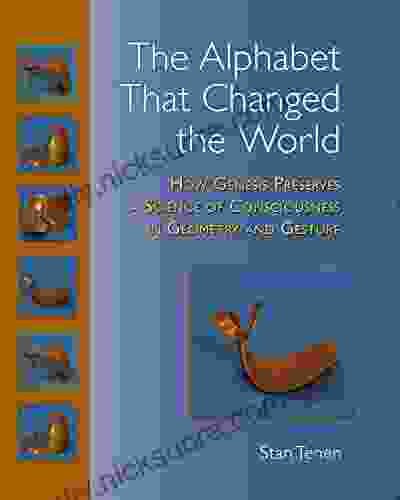
 Franklin Bell
Franklin BellHow Genesis Preserves Science Of Consciousness In...
The book of Genesis is...
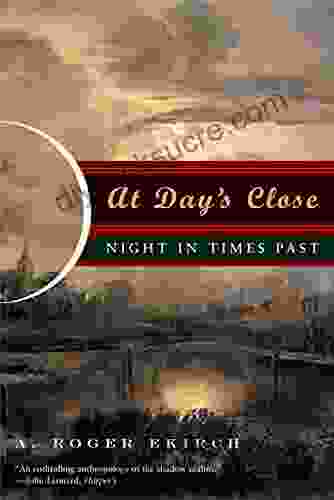
 Ted Simmons
Ted SimmonsAt Day's Close, Night in Times Past
As the sun dips...
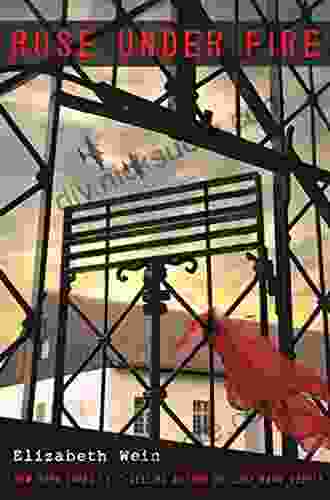
 Kenneth Parker
Kenneth ParkerRose Under Fire: Code Name Verity - A Heartbreaking and...
In the annals of...
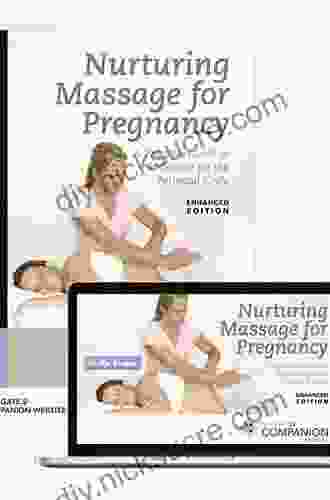
 Jerry Hayes
Jerry HayesNurturing Massage for Pregnancy: A Comprehensive Guide to...
Pregnancy is...

 Blake Bell
Blake BellFill in the Blank: Word Kind of Animal Farm for Kids and...
This interactive fill-in-the-blank...
4.5 out of 5
| Language | : | English |
| File size | : | 5947 KB |
| Text-to-Speech | : | Enabled |
| Screen Reader | : | Supported |
| Enhanced typesetting | : | Enabled |
| Print length | : | 400 pages |


